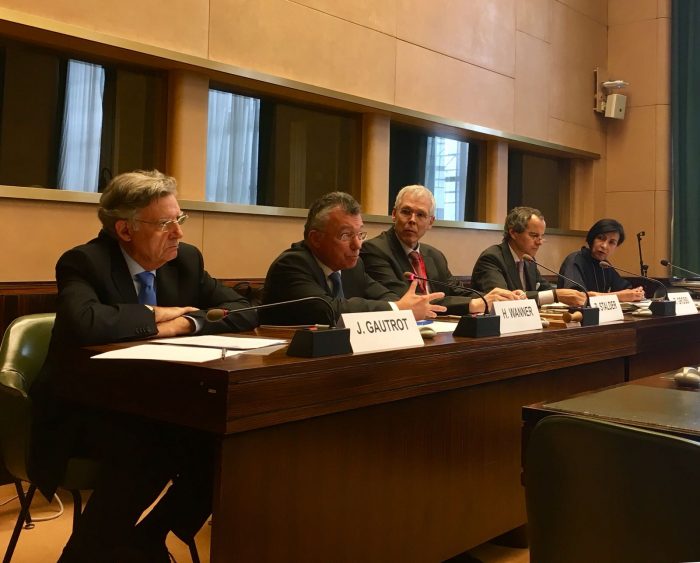Discussion on Nuclear Safety in the Context of the Nuclear Non-Proliferation Treaty
The Preparatory Committee for the 2020 Nuclear Non-Proliferation Treaty (NPT) Review Conference met last week in Geneva. In this context, Switzerland organized an international event in relation to nuclear safety and the peaceful use of nuclear energy. The Director General of the Swiss Federal Nuclear Safety Inspectorate (ENSI) was on the event’s panel and took the opportunity to argue for a strengthening of nuclear safety.
“Nuclear safety is a prerequisite for the peaceful use of nuclear energy,” ENSI Director General Hans Wanner said in Geneva. “It is therefore important not only to address this topic but also to enshrine the concept of continuous improvement of nuclear safety within the context of the Nuclear Non-Proliferation Treaty.”
During the panel discussion, Switzerland was recognized for its commitment to nuclear safety at the international level, for example its role in the adoption of the Vienna Declaration on Nuclear Safety. “The Vienna Declaration is the only international agreement to uphold the concept of continuous improvement. Given that the most recent final document of the Nuclear Non-Proliferation Treaty dates from 2010 and was therefore adopted prior to the nuclear accident in Fukushima, it is important to enshrine the principles of the Vienna Declaration in the new final document in 2020,” says Hans Wanner.
Supervisory authorities and operators play a key role in nuclear safety. They are in a position to improve the safety of nuclear power plants worldwide through a process of mutual exchange and knowledge transfer. “The regular exchange and systematic assimilation of operating experience represents an important contribution to worldwide nuclear safety,” says Wanner.
Nuclear Non-Proliferation Treaty
The Nuclear Non-Proliferation Treaty (NPT), which entered into force in March 1970, is intended to prevent the spread of nuclear weapons. Originally concluded for a period of 25 years, the Treaty was extended indefinitely on 11 May 1995. A Review Conference is to be held every five years. In preparation for the Review Conference, meetings are convened in Vienna, Geneva and New York. The 190 Parties to the Treaty are divided into two categories: nuclear-weapon states (NWS) – comprising the USA, Russia, China, France and the United Kingdom – and non-nuclear-weapon states (NNWS). The Treaty is based on three pillars: nuclear disarmament, non-proliferation and the peaceful use of nuclear energy.


